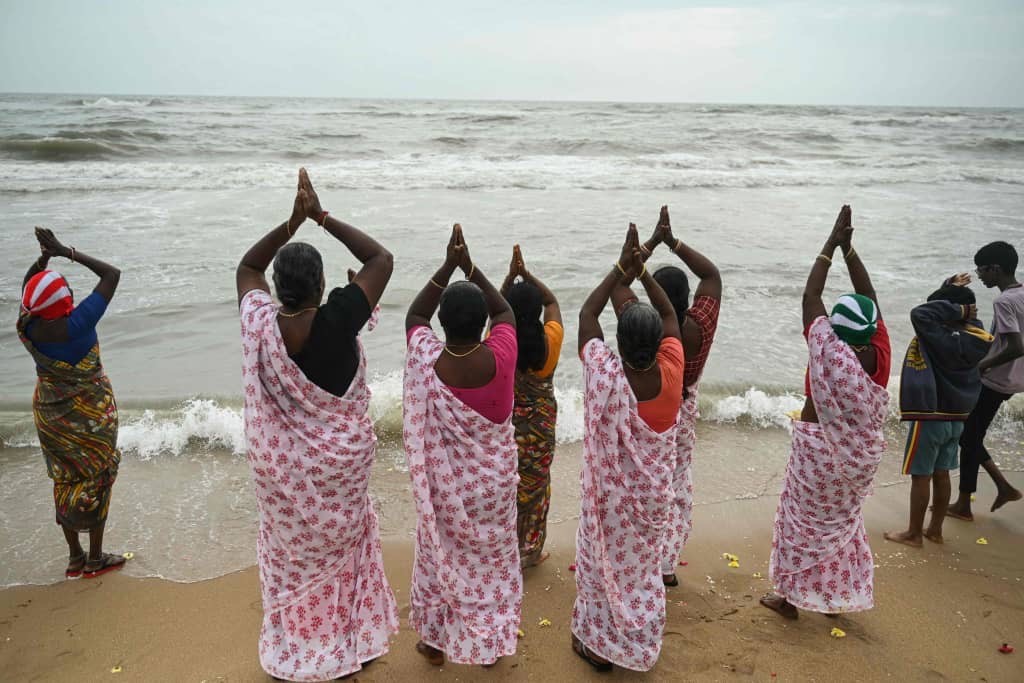JOHANNESBURG – When Jacob Zuma enters court for his corruption trial this month, more will be at stake than the reputation of South Africa’s former deputy president.
The case against Zuma, once the front-runner to succeed President Thabo Mbeki, has exposed splits in the ruling African National Congress (ANC), the party that under Nelson Mandela led South Africa from apartheid to multiracial politics. Analysts say the ANC is facing its worst crisis in years.Zuma is charged with taking bribes from a friend in exchange for political favours, including contracts in a multimillion dollar government arms deal.He is due in court on July 31.He has said the graft case is a shadowy political conspiracy against him charges echoed by his supporters who say he is being sidelined ahead of a key ANC congress next year which will pick the party’s next leader to take it into elections in 2009.Zuma, who was fired last year after he was linked to a corruption case involving a former aide, was acquitted last month on a separate rape charge but despite the court cases, he has remained popular and retained a senior position in the ANC.But his legal woes have highlighted internal divisions, although the ANC has dismissed media speculation about a looming leadership vacuum and sharpening internal power struggles.”The speculative prediction that the ANC may not ‘survive intact’, is nothing more than an expression of the vain wishes of its inventors,” Mbeki, who is due to step down in 2009, said recently.But political analysts say that whatever the verdict for Zuma, the ANC’s internal rifts will not disappear overnight.”Any person who says there is unity in the ANC is talking nonsense,” said political commentator Sampie Terreblanche, an emeritus economics professor at the University of Stellenbosch.”The ANC is trying its best to put up new wallpaper to cover up the cracks in the wall,” he said, referring to repeated party statements declaring unity.Another possible contender for the leadership could be wealthy businessman Cyril Ramaphosa, said by associates to be preparing a bid for the post, to be decided in December 2007.Ramaphosa has spotless credentials from the anti-apartheid struggle and is one of the country’s best known figures.Whoever wins the leadership battle will likely become the next president of the continent’s biggest economy.Despite disappointment with the slow pace of reforms, the ANC still commands the loyalty of most South African voters.Political analysts say this is because none of the country’s opposition parties appeals to the black majority.However, longtime allies in the labour movement and Communist Party have openly questioned the party’s direction.In June, the South African Communist Party (SACP) threatened to break away from the alliance and contest elections on its own, a move which could challenge the ANC from the left.And a month earlier, the influential labour group Cosatu said the country was sliding towards “dictatorship” under Mbeki, accused by some of cultivating a centralised style of leadership that appears intolerant of divergent views.- Nampa-ReutersAnalysts say the ANC is facing its worst crisis in years.Zuma is charged with taking bribes from a friend in exchange for political favours, including contracts in a multimillion dollar government arms deal.He is due in court on July 31.He has said the graft case is a shadowy political conspiracy against him charges echoed by his supporters who say he is being sidelined ahead of a key ANC congress next year which will pick the party’s next leader to take it into elections in 2009.Zuma, who was fired last year after he was linked to a corruption case involving a former aide, was acquitted last month on a separate rape charge but despite the court cases, he has remained popular and retained a senior position in the ANC.But his legal woes have highlighted internal divisions, although the ANC has dismissed media speculation about a looming leadership vacuum and sharpening internal power struggles.”The speculative prediction that the ANC may not ‘survive intact’, is nothing more than an expression of the vain wishes of its inventors,” Mbeki, who is due to step down in 2009, said recently.But political analysts say that whatever the verdict for Zuma, the ANC’s internal rifts will not disappear overnight.”Any person who says there is unity in the ANC is talking nonsense,” said political commentator Sampie Terreblanche, an emeritus economics professor at the University of Stellenbosch.”The ANC is trying its best to put up new wallpaper to cover up the cracks in the wall,” he said, referring to repeated party statements declaring unity.Another possible contender for the leadership could be wealthy businessman Cyril Ramaphosa, said by associates to be preparing a bid for the post, to be decided in December 2007.Ramaphosa has spotless credentials from the anti-apartheid struggle and is one of the country’s best known figures.Whoever wins the leadership battle will likely become the next president of the continent’s biggest economy.Despite disappointment with the slow pace of reforms, the ANC still commands the loyalty of most South African voters.Political analysts say this is because none of the country’s opposition parties appeals to the black majority.However, longtime allies in the labour movement and Communist Party have openly questioned the party’s direction.In June, the South African Communist Party (SACP) threatened to break away from the alliance and contest elections on its own, a move which could challenge the ANC from the left.And a month earlier, the influential labour group Cosatu said the country was sliding towards “dictatorship” under Mbeki, accused by some of cultivating a centralised style of leadership that appears intolerant of divergent views.- Nampa-Reuters
Stay informed with The Namibian – your source for credible journalism. Get in-depth reporting and opinions for
only N$85 a month. Invest in journalism, invest in democracy –
Subscribe Now!







